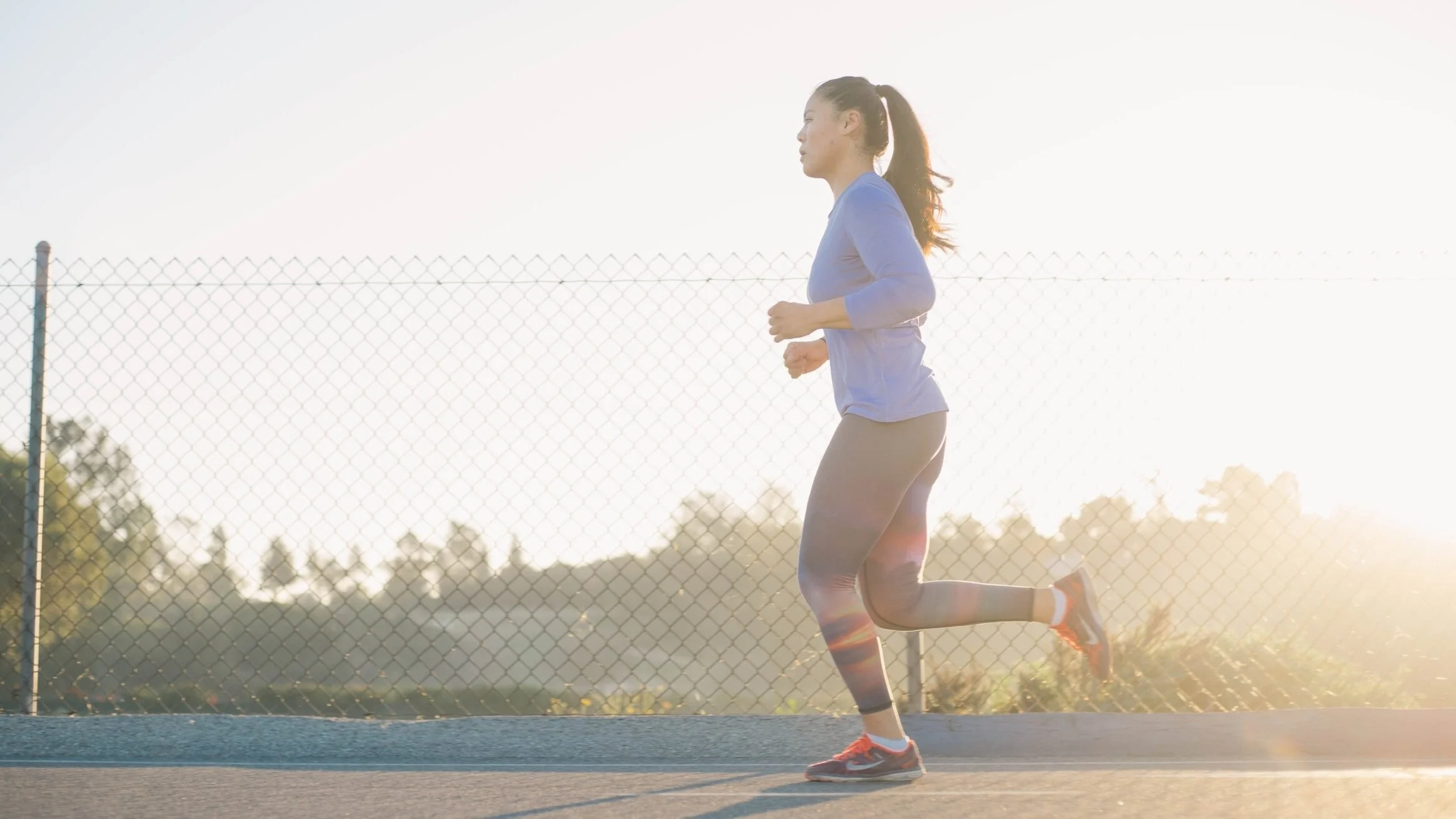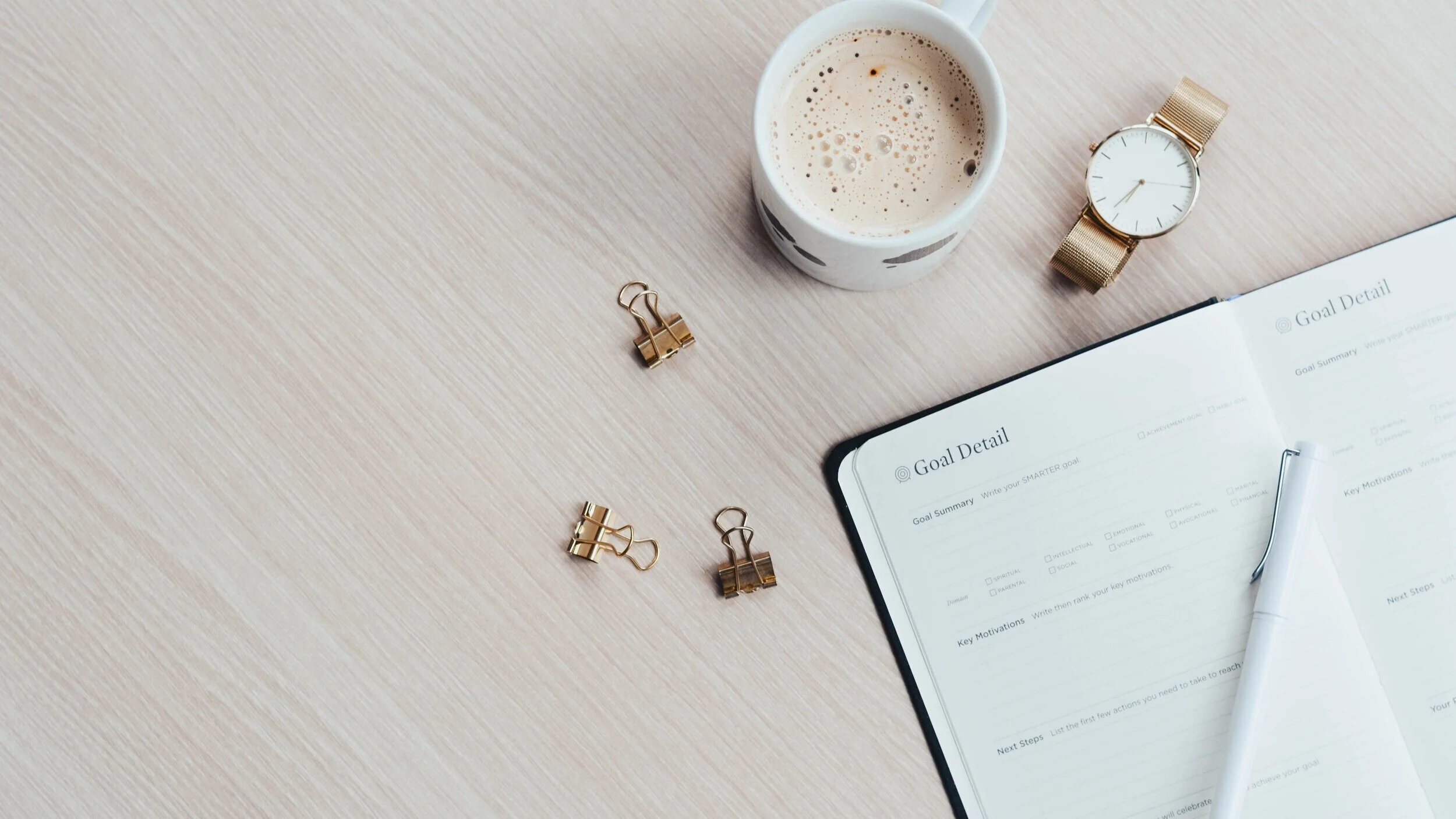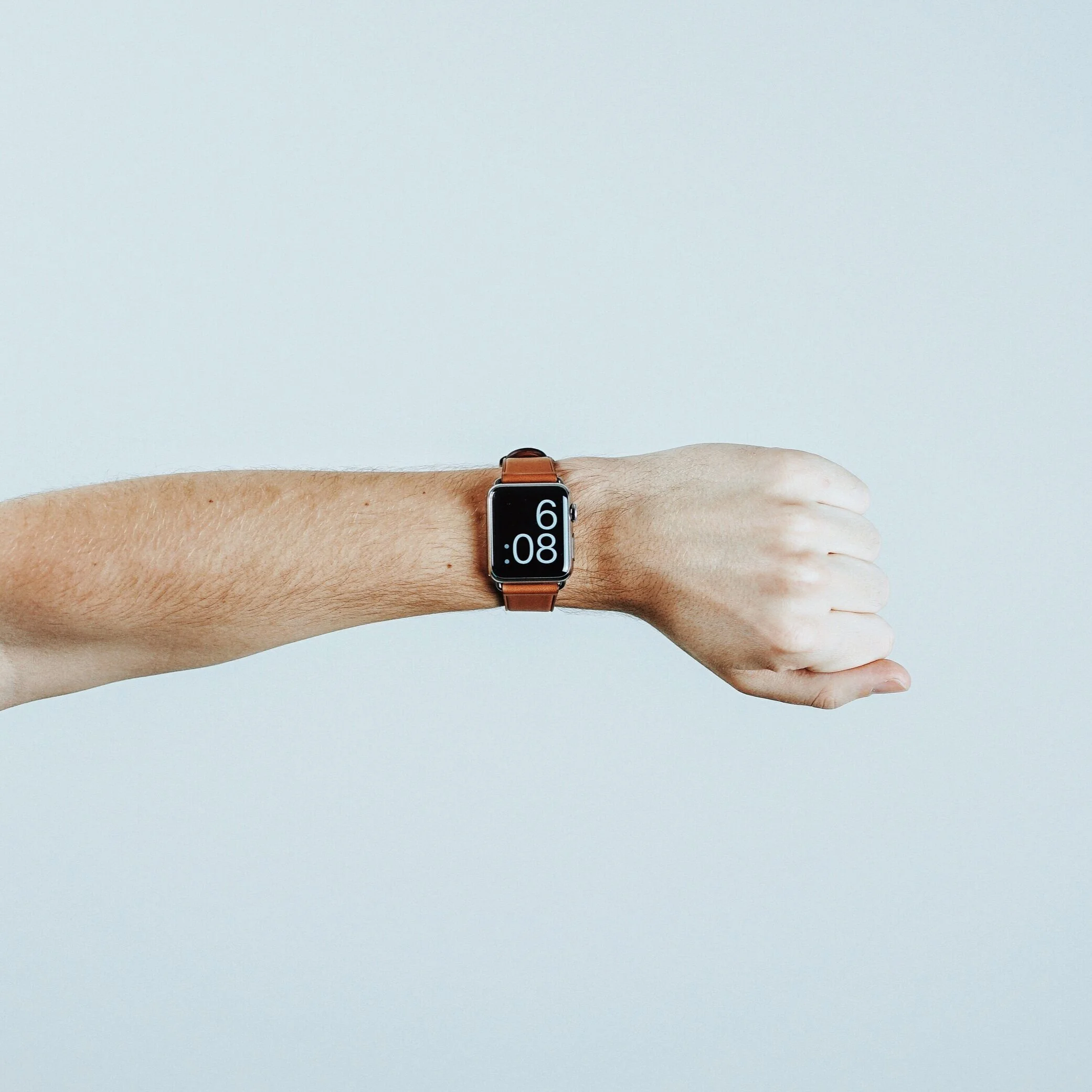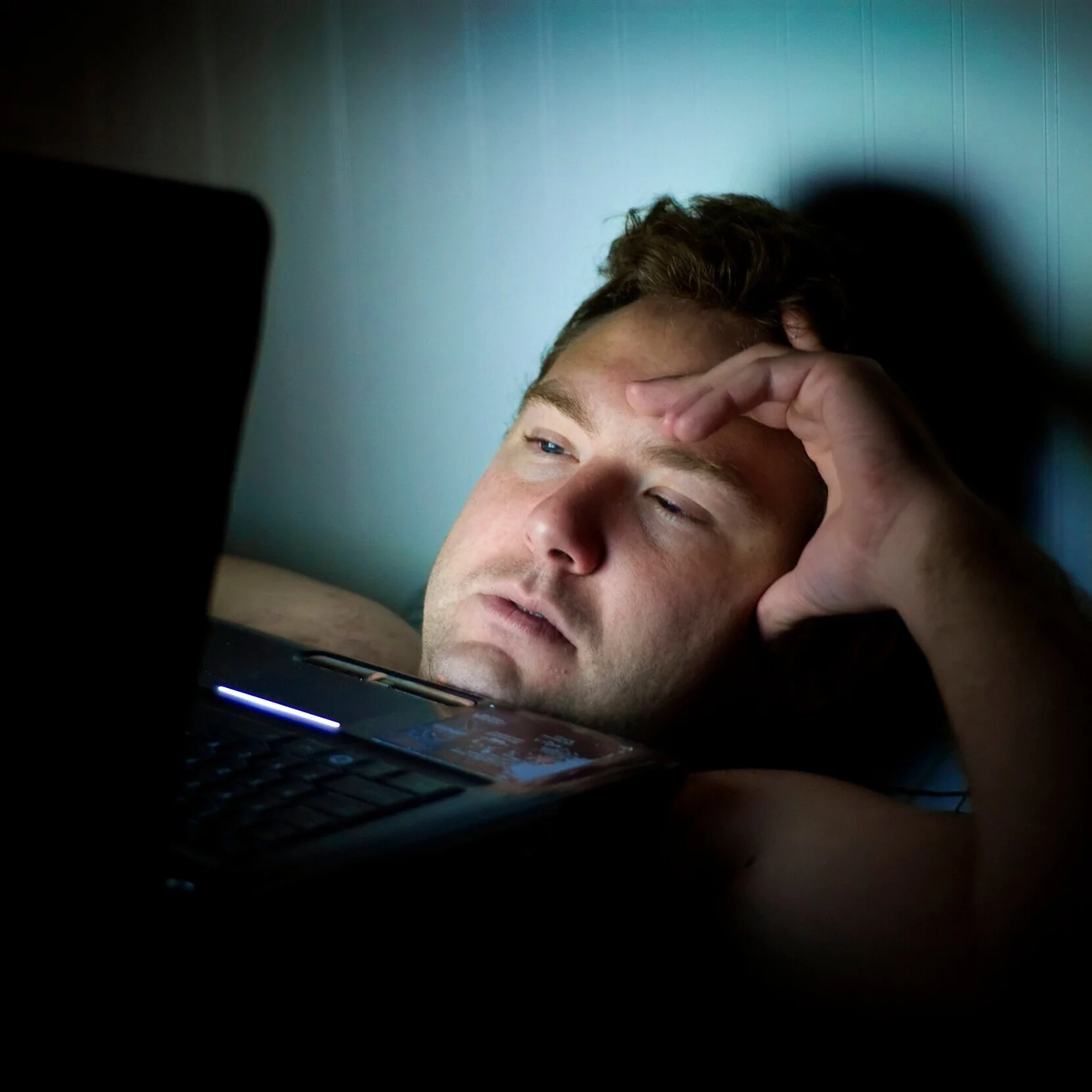How To Build Healthy Habits At Home And On The Road
Building healthy habits is vital for maintaining your health and wellness. Without proper routine, falling into bad habits becomes all too easy, especially when on the road. In this article we dive into what a habit is and when makes a habit last. Learn tips and hacks on how to build healthy habits that stick. Start building these habits now so you can take them on the road in the future.
A habit is a routine of behaviour that is repeated regularly and tends to occur subconsciously. It is difficult to give up and therefore becomes an ingrained part of our lives. When talking about habits, we often hear people talking about bad habits. That’s no surprise, we love to talk about the negative and skim over the positive and when most people think about habits, they think about breaking bad ones. But building and maintaining good habits is just as important as breaking those bad ones and building good habits is especially important if we want to stay fit and healthy. If we work toward creating good habits that focus on fitness, healthy eating and our mental health, then maintaining these routines will become like second nature to us and in return; it will be much easier to stay healthy.
Travel is a great disrupter of routine and can cause normally healthy people to practice some pretty bad habits. Being away from home and our regular routine can make it all too easy to say yes to bad food, lack of exercise and excise of things we manage better when at home. At Sanctifly, one of our core missions is to help frequent travelers build healthy habit so that being on the road does not affect their health and wellness. Building those healthy habits always starts at home. While it may take more effort and more planning to continue with those healthy habits while on the road, starting off with that base of familiarity makes it so much easier. We know not many are traveling right now but we will travel again and when we do, health and wellness will be even more of a priority. Now is a great opportunity to start building those healthy habits at home so that you can easily take them on the road when travel resumes.
How do habits work?
By understanding the structure of habits and the way habits are created and broken, we can better understand how to create and stick to healthy ones. According to Charles Duhigg, author of The Power of Habits, habits can be broken down into the following categories:
The Cue – This is a trigger that predicts some kind of reward. These can be internal or external that signals to your brain that it is time to exercise the habit.
The Craving – The desire to act in order to receive the reward
The Response – This is where you complete an action that can be described as the habit.
The Reward – This is where your brain receives some kind of reward for completing the action. The reward satisfies the craving and becomes associated with the cue, therefore developing the habit.
What makes habits to difficult to build and break is that these processes are subconscious. We do not actively say ‘I am craving this reward’ or ‘I need to do this in order to get the reward’. Our minds process this information so fast it can seem impossible to pinpoint each category and make positive changes. However, by understanding this structure, we can take an outside view of our own habits and intellectually breakdown how they are formed. We can identify common triggers and work to avoid them and identify rewards and work to build better habits that provide them.
That’s all well and good for breaking bad habits (which is definitely a must for most frequent travelers!) but what about building new ones? This post is all about building healthy habits now, while we are at home, that you can take with you on the road when travel resumes. So, before we get into some examples of good, healthy habits that work for home and travel, here are some expert tips on how to create and make them stick..
Tips for making habits stick
Make a habit stack
Habit stacks are great ways to create new habits by building on one’s you already have. Choose a habit that you already have and incorporate the new habit before or after it. This will make it easier to stick to the new habit because it is associated with something you already do without thinking. For example, if you wanted to get into the habit of drinking more water, you could create a habit stack with your morning coffee. I.e. When I pour my morning coffee I will also pour a glass of water.
Know your why
Get ahead of your excuses by knowing the WHY behind your effort to create a new habit. This may sound trivial, but in those moments of doubt or when the excuses tend to pop up, your WHY will direct you back to the reason and mindset for choosing this healthier lifestyle and path. Really work to understand why you want this new habit to be part of your life and, when things get hard, remind yourself of that reason.
Make your goals small and achievable
One of the main reasons we fail when we try to incorporate improvements into our lives is because we set our goals too high and become disheartened with the lack of progress. Having a clear end goal to work toward is important, but you should also set smaller, more achievable goals so you can feel like you have achieved something along the way.
Record your progress
It’s takes an average of 66 days for a new behaviour to become automatic. This is why it is so important to build your healthy habits at home and not while you travel. At home, you can be consistent and take action every day and truly create a lasting habit. Then, when you are traveling, the habit will be sore ingrained you won’t even have to think about doing it. Recording your progress so you can track how many days you have performed to habit and how many days you take off will give you a sense of how close you are to creating the habit.
Examples of healthy habits that will help you when you return to travel
Get outside and go for a walk every day
Lack of exercise is a huge issue for frequent travelers. Busy schedules, disrupted routine and unfamiliar surroundings do not create the best environment for working out. If you work to build the habit of going for a walk every day, you won’t be able to live without it when on the road and you will automatically get some exercise while you are away from home.
Create a sleep routine
Getting good sleep is another common problem that troubles frequent travelers. Again, busy schedules, disrupted routine and unfamiliar surroundings are to blame. If you get in the habit of a sleep routine at home, this can help to settle you into sleep while on the road. Choose a couple of actions (that don’t involve looking at your phone!) and do them every night before bed. These could be stretching, reading or mediating, for example. When you perform this routine while on the road it will subconsciously tell you body and mind that it is time to sleep and help you to wind down.
Stimulate your mind
Travel is incredibly stimulating for the mind. When we travel to new places we are forced to deal with new surroundings, new cultures and new languages. Navigating these unfamiliar situations helps to keep our minds sharp and in focus. For frequent travelers that are suddenly grounded, this can be a shock. If we get into too comfortable a routine while at home, returning to travel will be mentally draining. Work to create a daily habit of stimulating your mind so you are more prepared for getting back on the road. This could be reading or writing every day or perhaps using this downtime to learn a new skill.
Meal prep
A great benefit of being home more is that we get to cook our meals fresh each day and therefore get more variety in our nutrition. For many this has meant there is no need for meal prepping. This could cause problems when we return to travel. If we are not in the habit of meal prepping, we will not dedicate the time to prep lunches and snacks for when we travel. We will then be forced to eat food provided at the airport and on the plane (a lot of which is not very good for us). Try to meal prep a couple of times a week so you get back into the habit of making lunches.
Sanctifly is here to help frequent travelers make the most of their airport downtime and build healthy travel habits. We help travelers maintain their healthy routines while on the road by providing access to healthy activities, such as gyms, pools and spas all over the world. With so many frequent travelers still grounded, we have been working hard to help you build those healthy habits at home. We have added lots of new wellness content to the Sanctifly app. There are lots of healthy tips, fitness routines, nutritional advice and more, all available on the Sanctifly app today.
Download the app today to explore our content and start building your healthy habits at home with Sanctifly.
Sign up to the Sanctifly Travel Wellness Newsletter for monthly tips and information on the travel industry and how you can stay safe and healthy in the post Covid-19 world.
For more information on our membership types, click here.
First Flight, New World: Hygiene Tips for Your Hotel Room
Hotels have been left empty over the past few months and are looking forward to welcoming back guests. While hotels will be doing a lot to ensure that their properties are safe and hygienic for guests, there are a few things you can do to make sure your hotel room is as safe as possible.
Hotels have been left empty over the past few months and are looking forward to welcoming back guests. While hotels will be doing a lot to ensure that their properties are safe and hygienic for guests, there are a few things you can do to make sure your hotel room is as safe as possible.
Put your luggage in the closet: The key to reducing the risk of cross-contamination is to keep things as separate as possible. Store your luggage in a closed closet rather than leaving it out in the room can help keep it away from you. But, before you put it away, make sure to wipe down the plastic handles and zips with a disinfectant wipe.
Wipe down multi-touch surfaces: The cleaning staff at the hotel will be adequately trained in thoroughly cleaning and disinfecting your room and there will likely be increased cleaning schedules as hotel reopen. Therefore there is no real need to wipe down multi-touch surfaces in your hotel room, but for peace of mind, it can be useful to do it ourselves. Spend some time wiping down door handles, light switches, the TV remote, bedside table and the taps in the bathroom.
Open the window (if you can) to get some fresh air circulating in the room.
Mask Hygiene while on the road
Face masks are not only becoming the norm in the airport; they are becoming more and more common anywhere people come into contact. A face mask will become the new necessary everyday item, especially while traveling, we will have to consider how to keep them efficient and hygienic. There are two types of masks you can use, a disposable mask that has a one time use or a reusable one that should be washed once a day in hot water and detergent. It is advisable to use a disposable mask while traveling as it is unlikely you will have easy access to laundry facilities while on the road. If you do opt for reusable masks the WHO recommends that you store your mask in a sealed plastic bag after use so make sure you pack some bags in your luggage. When disposing of a disposable mask, the WHO recommends that you throw it out in a close bin. Make sure to check what type of bin has been provided in your hotel room and request a closed bin or disposable solution for your masks if necessary.
How to make your hotel room feel like a home so you can relax
Once you have completed all the necessary hygiene tasks to make your hotel room feel as safe and comfortable as possible, it is now time to work on making yourself feel as comfortable as possible. Being away from home in unfamiliar surroundings can negatively affect our mood and our sleep. We asked Sara Quiriconi, frequent traveler and travel wellness expert to share her top tips for making your hotel room feel like a home. Check out her video guide here.
Top Tips For Making Your Hotel Room Feel Like A Home
Bring a travel-sized container of all your toiletries so that you can do the same routine you do at home on the road. This not only provides a level of comfort and routine to your hotel experience; it will also help relieve any stress you have about using hotel products. If you bring your own toiletries, you know who has come into contact with them.
Create a 5-minute pre-sleep ritual. For example, you could do a short meditation, a few stretches, or reading for 15 minutes (avoid screens as much as possible). The goal is to subconsciously signal to your body and mind that it is time to sleep while drawing the focus away from your surroundings. These simple, repeatable actions are grounding and can help to relieve stress and calm racing thoughts for better sleep. The key is to build the routine at home and then take it on the road.
Pack tools to help block out your surroundings and get a good night’s sleep. Noisy neighbors and too much light is the perfect recipe for a miserable night’s sleep. Pack earplugs and an eye mask to ensure nothing disturbs you and it feels as close to falling asleep at home as possible.
Treat your hotel room like your home. Make your bed, throw away your trash and hang up your clothes. Even though there is a service that will clean your room for you, by keeping a clean and tidy space just like you would at home, you will feel more comfortable.
Pack your favourite snacks. The most un-homely thing about a hotel room is that it is essentially just a bedroom and you have to leave if you want to eat. During a vacation, this is no problem; you want to be out and about all day and just return to your room to sleep. However, when on a business trip, your hotel room becomes your sanctuary and the only place you can relax. By packing your favourite snacks and having them on hand, you can make your hotel room feel more like home.
The Sanctifly app features lots of great travel tips such as these to help you stay healthy while on the road. Download the app today and browse hundreds of travel wellness tips, articles and airport guides to help upgrade your airport experience and start healthy on your next trip.
Sign up to the Sanctifly Travel Wellness Newsletter for monthly tips and information on the travel industry and how you can stay safe and healthy in the post Covid-19 world.
No Gym? No Problem! 5 Tips To Help Maintain Your Fitness At Home Or On The Road
As Covid-19 completely turns our lives upside down, a lot of us are missing our daily routines. With gyms and other fitness facilities closed, maintaining our fitness is getting tough. Here are 5 top tips to help you stay fit and healthy and get some exercise when you do not have access to a gym.
5 top tips to help maintain your fitness routine when you do not have access to a gym.
It is a strange time. As Covid-19 completely turns our lives upside down, it’s understandable that fitness is not top of everyone’s to do list. But as we were chatting among the team here at Sanctifly I realised that a common topic and problem for everyone was how much we are missing going to the gym and working out. Exercise will do wonders for your physical as well as your mental health and in these uncertain times, maintaining a healthy body and a healthy attitude is now more important than ever.
Covid-19 is keeping most people confined to their homes, preventing access to gyms and fitness classes and disrupting our fitness routines. Those with a fully equipped home gym and few and far between. And while we may have a dumbbell or two stuffed at the back of a closet, most of us do not have anything to replicate our usual gym facilities. While we usually focus on travel related topics here on the Sanctifly blog, what we are really interested in talking about and giving advice on is wellness and not letting anything (whether that be travel or a global pandemic) disrupt your routine. Some hotels, especially smaller, more affordable chains or inner-city boutique hotels do not have fitness facilities and when you return to travel and things get back to normal, you may find yourself in this same situation. Asking yourself, how can I maintain my fitness routine when there is no gym to go to? Here are 5 top tips for maintaining your fitness routine when you have no access to a gym. These tips are helpful now that we are staying home due to Covid-19 but keep them in your back pocket for the next time you are traveling and don’t have access to fitness facilities.
1. Follow a fitness instruction video
If you are a regular gym user, you probably have a routine that takes advantage of the equipment and weights available there. Translating that routine into an at home exercise routine with no equipment is difficult to do. Follow along with a fitness routine video to help get in a good workout without the pressure of designing it yourself. Search for ‘Exercise routine with no equipment’ and you will find lots of options. Check out this great core routine from Sanctifly ambassador and travel wellness expert, Sara Quiriconi.
2. Make a schedule and stick to it
Building habits is all about consistency. Make a routine and schedule for your fitness and stick to it! Plan out your week and decide which days and at what time you are going to exercise. Having a set plan written down makes it easier to do it. Set alarms on your phone to remind yourself to exercise and make sure that your workout clothes are clean and ready when you need them, just like you would if you were heading to the gym after work. Working out at home is hard enough, give yourself every chance to stick to your fitness routine and feel better for it.
3. Use what you have to replace equipment
No need to run out to the shop to buy gym equipment, just use what you already have at home as a substitute. Layer some towels on the ground to use as an ‘exercise’ mat. This will give you some protection from the hard floor and let you easily do some floor exercises without bruising yourself. Big books work great as light weights for side twists or overhead crunches and any ropes you have lying around can be re purposed as skipping ropes or resistance bands. OK, I know it’s not ideal, but if you get creative you can save a lot of the money and space required for kitting out a home gym.
4. Use your own body weight
Really you don’t need any equipment at all to exercise effectively at home. Body weight exercises have been around a long time and are used by fitness enthusiasts all over the world. Exercises such as lunges, squats, push ups and sit ups are a simple, effective way to improve balance, flexibility, and strength. Many of the ‘no equipment needed’ exercise routine videos will use body weight exercises so that you can easily work out at home.
5. Incorporate stretching and yoga into your routine
You don’t need to do a high intensity workout to get in some exercise at home. Yoga and stretching do not require any equipment at all and are a great form of exercise and movement. This situation can be a great opportunity to try yoga for the first time and feel the benefits of stretching and moving your body in an intentional and mindful way. If you are working from home and are sitting at a desk all day, a quick stretch routine at the end of the day can help loosen up your muscles and help you feel more energized. As an added bonus, most yoga routines will incorporate some kind of meditation or breathing exercises which can be beneficial for your mental and physical health.
The most important thing to remember is not to be too hard on yourself when it comes to your fitness. For some people working out by yourself at home is hard as it can be difficult to get into the right head space for exercise. While there are significant benefits to working out at home, especially as we spend more time inside, some people just exercise better in a class setting or by participating in a sport. On top of that, as we are all stuck at home, we are missing out on a lot of micro exercises through out the day. We are unintentionally exercising when we walk to the car or go to grab a cup of coffee. All this combined can make us put unnecessary pressure on ourselves to exercise more vigorously while at home. Don’t forget your mental health is as important as your physical health so don’t neglect it. Maintaining a fitness routine and moving your body is important but its OK if your fitness slips a bit during quarantine. Making sure you are safe, healthy and happy is top priority in these strange and trying times, so give yourself a break. 😊
Mental Health Tip for Quarantine
Get out in the fresh air at least once a day. You don’t have to leave your house, just stand in your garden for half an hour each day. Staying inside all the time can create a disconnect from the rest of the world and make you feel lonely and isolated. Even if you do not talk to anyone, simply being outside and breathing some fresh air will do wonders for your mental health.
Return to Travel
Right now, we are all staying at home and staying safe and for most of us, travel is the furthest thing from our minds. But things will get back to normal and we will travel again. We at Sanctifly believe that travel wellness and healthy travel will be a top priority among frequent travelers when we return to normal. To stay up to date with all things travel wellness and learn about how you can travel well when you get back on the road subscribe to the Sanctifly Travel Wellness Newsletter.
Until we travel again,
Stay safe from all on the Sanctifly Team.
7 tips to sleep well while traveling
With all that comes with frequent travel, jet lag, early or late flights, disruption in routine, it is no wonder that business travelers find it difficult to get a good night’s rest while on the road. Here are 7 tips to help you sleep better while traveling.
7 tips to help you to sleep better while traveling
Manage jet lag
Create a sleep travel kit
Get some exercise
Avoid screen time before bed
Create a bedtime routine
Avoid stimulants
Get sleep where and when you can
Sleep is one of the most important processes we go through, it is a chance for our bodies to rest, recover and restore after the day. And it is as important for our mental health as it is for our physical health. According to the National Sleep Foundation sleep also plays a vital role in strengthening and defining our memories. We take in so much information during the day and our brains take the time while we are sleeping to process and store this information. A good night’s sleep is important for staying sharp and focused, both of which are incredibly important if you are about to head into that big sales meeting or meeting a potential client for the first time. Business travelers need to get a good night’s sleep but studies show that this is not the case. According to a global study commissioned by IHG in 2019, 80% of frequent travelers have trouble sleeping when they are away from home and business travelers lose on average 58 minutes of sleep each night! While juggling time zones, early and late flight times and disrupted routines may be inevitable for frequent travelers there are some things every traveler can do to improve their sleep routine. Here are some tips to help you sleep better while traveling.
1. Manage jet lag
Jet lag is a caused by disruption to our circadian rhythm (a 24-hour internal clock that allows your body and brain to cycle between periods of alertness and sleepiness). Travelers experience jet lag when moving between time zones and our circadian rhythm falls out of sync with the world around us. We feel sleepy in the middle of the day and can’t sleep at night leaving us tired and cranky when we need to be focused. Every experienced traveler has their own jet lag fighting tips and tricks, but we at Sanctifly are a fan of following the science. We all use the Timeshifter app to manage our jet lag while traveling. Timeshifter helps you create a personalized jet lag plan so that you can arrive at your best and adjust to new time zones 3 times faster. Sanctifly members can use a Sanctifly pass to get a 12 month membership to Timeshifter. Download the app and check it out!
2. Create a personal sleep kit
Sometimes it’s the little things that make a huge difference, especially when it comes to sleep. Create a sleep kit that is on hand to throw into your luggage and add it to your packing list. A sleep kit will be personal to you, whatever you feel will help you to sleep better while on the road. I include some lavender spray, a sleep mask, ear plugs and some natural sleep aids. Here’s a good tip I recently picked up, start sleeping at home with an eye mask (even if you don’t really need it). By creating this habit, you are signalling to your brain that putting on an eye mask means sleep. When you put in the eye mask while on the road, your body will instinctively start to get ready for sleep.
3. Get some exercise
Countless studies have shown that exercise improves sleep quality and sleep duration. Tiring out your body with exercise not only makes it easier for you to relax, exercise is also a great way to relieve stress. Stress is a common cause of sleep problems and traveling for work can be very stressful. Even just 10 minutes of exercise can have great, lasting effects on both your physical and mental health so make sure you schedule in some exercise time on your next business trip.
4. Avoid screen time before bed
Blue light, which is produced by computer and phone screens mimics daylight and tricks our bodies into reducing the production of melatonin. Melatonin is the hormone we produce in order to make us sleepy and is suppressed during the daytime. When we look at screens just before bed the blue light signals daytime to our brains and bodies and we find it much more difficult to fall asleep. The best way to avoid this happening is to avoid looking at screens before bed. Create a pre sleep routine that does not include looking at your phone and stick to it! Also, add a blue light filter to your phone just in case you slip!
5. Create a routine
Following on from the previous point, creating a bedtime routine will do wonders for regulating your sleep while traveling. Again, it is all about sending signals to the body and the mind to let them know that it is time for sleep. If you do the same things for the hour before your go to bed every day, for example you may brush your teeth, do a skin care routine, read for 30 minutes or whatever else you like to do and then take that routine with you while you travel. Your body will automatically start getting ready for sleep as you go through your routine and you will find it much easier to sleep when you are away from home.
6. Avoid stimulants
This point pretty much goes without saying, stimulants such as alcohol and caffeine make your body alert and awake and make falling asleep much more difficult. The next time you are on a business trip and you want to get a drink opt for a herbal tea instead of alcohol or a coffee. Of course, there will be a time when you fancy a drink, don’t worry we have all been there! Check out this video by Sara Quiriconi, travel wellness expert for Sanctifly on how to have your drink but stay healthy too.
7. Get sleep where you can and when you can
A disrupted and disjointed routine comes with the territory when you are a frequent traveler. Flights leaving at odd hours, time spent waiting in the airport and different time zones do not lend well to a consistent routine. The best way to ensure you get enough sleep is to sleep wherever and whenever you can. Many airport lounges offer sleep rooms for rent and some airports are even beginning to offer sleep pods in the terminal. You can click the ‘Sleep’ option in the Sanctifly app to find all the sleep options available at your preferred airport.
Sleep is so important for a healthy and happy life. Even when things are stressful a good night’s sleep can do wonders to relieve stress and give you a new perspective on a situation. You can sleep and travel better with a Sanctifly membership. We have membership plans for every type of traveler, whether you only travel a few times a year or you travel every week. Download the Sanctifly app today and browse through 2500+ wellness focused locations available at 130+ international airports.
For more great tips on how to sleep better and how to fall asleep faster, check out this article from Sleepreport.
Is business travel bad for your employees? Over 20% of employees say yes
According to a recent survey conducted by YouGov on behalf of NexTravel, more than 20% of US business travelers surveyed report that business travel has a negative impact on their physical and mental health. Learn some simple actionable steps that you can implement in 2020 to help your employees Travel Well.
According to a recent survey conducted by YouGov on behalf of NexTravel, more than 20% of US business travelers surveyed report that business travel has a negative impact on their physical and mental health. Managing finances, maintaining personal relationships or missing important family events, lack of or poor-quality sleep and a decrease in productivity are just some of the factors that frequent business travel is having an impact on. There has been a lot of research into how business travel affects employees in the past few years and I’m sorry to say that the result are resoundingly negative. Combine this with the fact that face to face meetings are 34 times more likely to get favourable results, according to a research study conducted by the Harvard Business Review. So it seems that employers are pushing for more in person meetings and more business travel but falling short when it comes to looking after their employees’ well being. The opportunity to travel can be an inviting perk of any job however with more people researching company culture before taking a job, your company’s attitude to business travel and travel culture could be losing you valuable talent.
So that leads us to the question...
What can you do to improve you company’s travel culture and help attract and retain top talent?
At Sanctifly we talk with employers every day about their company culture and how they promote travel wellness among their traveling employees. Here are some of our top tips:
1. Help your employees to build a healthy resilience to frequent travel.
Frequent travel takes it toll on your health. Late nights, long flights, uncomfortable and unfamiliar surroundings all contribute to create unhealthy travel habits, removing us from our routine and normalises unhealthy behaviour. We drink more, sleep less and barely exercise and because we are away from home and outside of our normal routine, we justify it. Active steps need to be taken by employee and employer to help traveling executives counteract the negatives and build a healthy resilience to frequent travel. There are many things you can do to achieve this such as making wellness part of your travel policy, plan with your traveling employees so they know where they are going and what they should expect and help them to re frame their thinking around business travel and airport downtime. You can read about it in more detail here or, if you prefer to listen check out our webinar on ‘How to build a healthy resilience to frequent travel’ with Travel Wellness Expert, Sara Quiriconi.
2. Set realistic expectations
Time is always scarce when it comes to business travel. And it is understandable, everyone wants to get as much return on their investment as possible and unfortunately this can sometimes come at the expense of the traveling employee. According to the survey ‘22% of people say they feel they are being unproductive up to 50% of the time while on a business trip.’ Pressure from management to get things done combined with the feeling of being unproductive and not meeting expectations is extremely bad for your mental health. Setting clear and realistic expectations and setting out a plan for business trips can help alleviate stress for employees. Make it clear what they are expected to achieve, when they are expected to be contactable and what other work tasks they can realistically expect to get done while on the road. Talk through the plan with your employee and make sure you both sign off on it because sometime what may seem achievable from the office is just not feasible while on the road.
3. Prioritise physical and mental health
We always encourage employers to stress the importance of health and well being while on the road and help them to see airport downtime as a time to practice self-care. Workout, stretch, meditate or get a massage, if airport time is not considered work time and the employee is free to spend it as they wish, you can be sure they will arrive off that plane and into the meeting refreshed and energised. Sanctifly is the best option for employee travel wellness. Your employees can get access to airport lounges and spas and airport hotel gyms and pools without booking a room. For information on corporate rates contact us today.
4. Be proactive about jet lag and sleep deprivation
There are countless studies out there that prove lack of sleep leads to a reduction in productivity. We don’t even really need to read the studies; we have all had those days after a bad night’s sleep where we have been unproductive and probably a bit cranky. According to the survey ‘26% of people say business travel makes them feel exhausted’. Is it any wonder that so many also say they feel they are unproductive which traveling for business? Tiredness can have a greater negative effect on traveling employees than reducing productivity and effectiveness in meetings, it can also create negative connotations with business travel that can be difficult to change. Lack of sleep seriously affects our mood and overall happiness and if we associate a bad mood with traveling for work, we won’t be jumping with excitement at the prospect of our next business trip. By encouraging employees to look after their sleep schedule and take active steps to fight jet lag, you can help them to sleep better while on the road. Timeshifter is a create technological solution. Developed with sleep scientists the app helps you to create your own personalised jet lag plans. Sanctifly members can get a special rate on a Timeshifter membership as well as access to travel wellness content designed to help promote a healthy sleep schedule while on the road.
5. Ask your employees how their business travel experience can be improved
‘59% of those polled said ‘always, often and sometimes’ when asked how often they are ‘left unhappy with the experience of a business trip’. This is a worrying statistic as the majority of those surveyed travel for business multiple times a month. Business travel is clearly a large part of their working life and having a negative business travel experience will reflect negatively on their overall view of their job. Stress also plays a part here. As mentioned above, a stressful business trip experience can lead to bad connotations with travel and cause stress and anxiety when the next trip is looming. 16% of people have quit a job because of stress. Only your traveling employees can really know what will make them feel better about business travel so ask them. Conduct an in-house survey and really figure out what you can do to make your employees experience with business travel better.
Business travel is an important activity for a lot of businesses but it should not come at the expense of your employees. And it doesn’t have to! Take these steps and help your traveling employees to Travel Well in 2020.
If you are looking for the best travel wellness solution for your traveling team then you need Sanctifly. Sanctifly is the number one global provider of wellness options ans activities in and around airports. Members get access to airport lounges and spas at a discounted rate and get access to airport hotel gyms and pools without booking a room. Help your team take back their airport downtime and start Traveling Well.



































